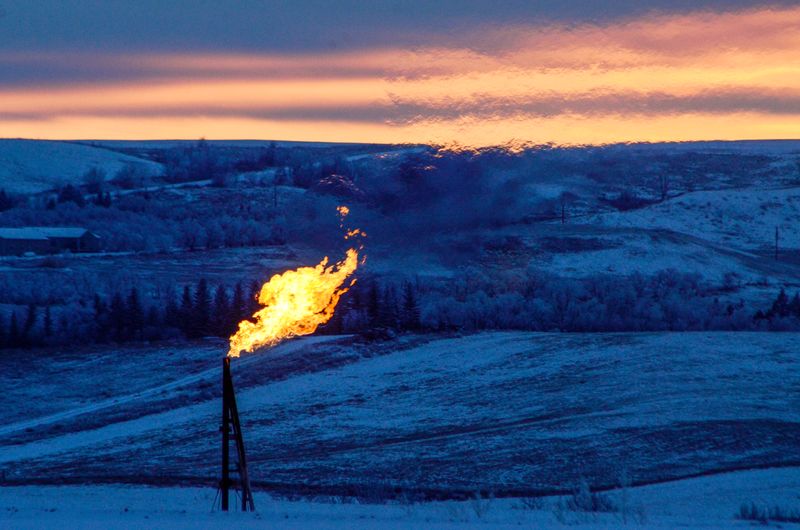By Valerie Volcovici and Nichola Groom
(Reuters) - The Biden administration’s decision to exclude the existing U.S. fleet of natural gas power plants from upcoming carbon emissions regulations raises questions over the nation's ability to meet its climate goals, according to researchers.
Cleaning up the U.S. power industry, source of about a quarter of the nation’s greenhouse gas emissions, has been a central plank of President Joe Biden’s strategy to decarbonize the nation’s economy by 2050 to counter global warming.
But in an unusual move, the Environmental Protection Agency late last week said it would take existing gas plants, which account for over 40% of U.S. power sector carbon emissions, out of the plan before finalizing the rule – a decision made after months of intense industry opposition.
Because the standards would not have kicked in until after 2030, the existing gas plant rule would have had a minimal contribution to near-term targets. But reducing emissions from those plants would be critical for U.S. climate goals beyond 2030, said Ben King, an associate director with Rhodium Group's energy and climate practice.
"Once you retire or mitigate a bunch of emissions from the coal fleet, then what you are left with in the power sector is a bunch of gas that you need to figure out what to do with,” he said. "Utilities and grid operators need to really start planning for that now."
The EPA has said it plans to write a separate rule to cover CO2 emissions from existing gas plants as well as other hazardous air pollutants after it finalizes the rest of the regulation later this spring, but did not give a specific timeline.
The process of writing and finalizing a new rule often takes over a year and the agency faces the distraction of a looming general election in November. If President Joe Biden loses his bid for a second term to Republican rival Donald Trump, the effort would likely be abandoned.
"The Trump administration displayed enormous hostility to environmental protections for American communities when they were in power," Trevor Higgins, senior vice president for energy and environment at the left-wing think tank Center for American Progress, said.
"They intend to roll back and halt climate policy across the board."
Natural gas plants account for 43% of power sector greenhouse gas emissions, according to EPA's latest figures, and are on track to replace coal as the industry's largest source of emissions in 2028, according to the Energy Information Administration.
The proposal stripped from the power regulation would have required large gas-fired plants to install carbon capture equipment by 2035, or co-fire with 30% hydrogen by 2032. The power industry called the proposal unworkable.
EPA estimated when it initially unveiled the plan that the portion of the regulation that covered existing gas plants would lead to a cut of between 214 million and 407 million metric tons of carbon dioxide between 2028 and 2042 – the equivalent of around 6% of total U.S. CO2 emissions in a year.
UNUSUAL PROCESS
The EPA’s proposal upset the U.S. power industry right from the start, in part because utilities had not expected existing gas plants would be included.
EPA staff had worked for months on a proposed rule covering coal and new gas plants only, but existing gas plants were added following a White House review, weeks before the May release, according to regulatory documents.
The White House and EPA declined to comment on the reason for the last-minute addition.
Industry groups as well as some environmental justice advocates later argued the proposals for existing gas plants could backfire by leading utilities to rely on smaller, dirtier plants that fall outside the regulation in order to avoid costly upgrades to bigger generators.

An EPA spokesperson acknowledged shortcomings of the rule.
"The 2023 proposal for existing gas-fired power plants focused only on large baseload natural gas-fired power plants, considered a limited range of technology options, and initially included separate analyses of available technical information at the time to support different parts of the proposal," EPA spokesperson Tim Carroll said.